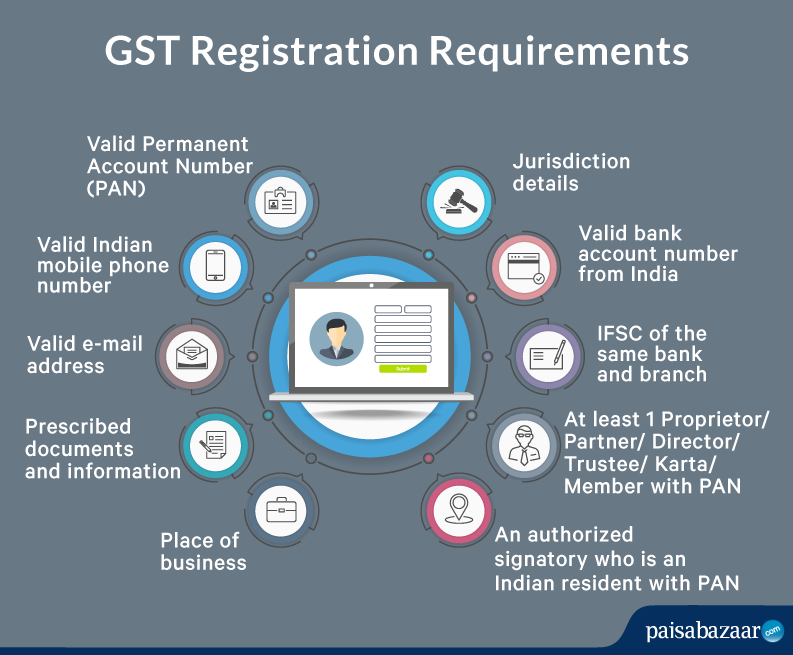Budget-friendly Options for the very best GST Registration Services in Singapore
Budget-friendly Options for the very best GST Registration Services in Singapore
Blog Article
Throughout: The Ultimate Roadmap to GST Registration for Businesses Looking For Financial Stability
Navigating the complexities of Product and Provider Tax Obligation (GST) enrollment is an important action for services making every effort for economic security. Breaking down the roadmap into workable steps can streamline the registration trip for services looking to improve their monetary standing.
Comprehending GST Basics
Digging into the fundamental concepts of Goods and Solutions Tax (GST) is essential for gaining a comprehensive understanding of its ramifications on businesses and the economy. GST is a value-added tax obligation imposed on a lot of products and solutions for residential consumption. It has replaced numerous indirect taxes that existed in the pre-GST era, simplifying the tax obligation framework and enhancing convenience of doing business in India. Under the GST system, both items and services are strained at a particular price, which is determined based upon their category. If their yearly turnover surpasses the threshold limitation established by the federal government, businesses are required to sign up for GST. Input Tax Obligation Credit History (ITC) is a considerable function of GST, permitting businesses to declare debt for tax obligations paid on inputs, minimizing the total tax obligation worry. Understanding the basics of GST is critical for businesses to adhere to tax obligation policies, manage their funds successfully, and contribute to the country's economic development by joining a transparent tax system.
Qualification Requirements for Enrollment
To register for GST, organizations need to satisfy certain eligibility standards established by the government. The primary qualification demand is that any kind of business associated with the supply of goods or solutions with a yearly aggregate turnover above the threshold restriction established by the authorities need to register for GST. As of the present laws, the threshold limit for GST enrollment is an annual aggregate turnover of 40 lakhs for businesses operating within a state, except for special group states where the restriction is 20 lakhs. Additionally, certain services are needed to register for GST regardless of their turn over, such as interstate vendors, informal taxable persons, and companies reliant pay tax under the reverse charge system. It is crucial for services to completely examine their turnover and transaction types to determine their GST enrollment obligations precisely. Failing to sign up for GST when eligible can lead to fines and lawful consequences, making it vital for businesses to comply with the defined qualification requirements.
Papers Needed for Registration
Having actually met the eligibility criteria for GST registration, organizations should now guarantee they have the requisite papers in location to continue with the enrollment process successfully. The papers required for GST enrollment generally consist of evidence of company constitution, such as partnership deed, enrollment certification, or unification certificate for different kinds of services. Additionally, services need to offer records developing the primary place of company, such as a rental contract or power costs.
Step-by-Step Enrollment Process
Beginning the GST enrollment procedure includes a series of structured steps to guarantee a compliant and smooth enrollment for services. The initial step is to go to the GST website and fill in the registration kind with precise details of the service entity. Following this, the applicant gets a Short-term Referral Number (TRN) which is utilized to return to the application process if it's not finished in one go.
Following, all needed documents according to the list supplied by the GST portal need to be posted. These documents commonly consist of proof of organization enrollment, identity and address evidence of marketers, economic declarations, and company entity's PAN card.

Post-Registration Compliance Guidelines

Final Thought
To conclude, companies seeking financial security must understand the essentials of GST, satisfy eligibility criteria, collect required files, follow the step-by-step enrollment process, and comply with post-registration standards - Best GST registration services in Singapore. By adhering to these steps, services can make certain conformity with tax regulations and keep monetary stability in the future
In addition, particular companies are called for to sign up for GST irrespective of their turn over, such as interstate vendors, laid-back taxed individuals, and companies liable to pay tax obligation under the reverse charge system.Having fulfilled the eligibility standards for GST registration, services need to now guarantee they have the requisite files in location to continue with the registration process successfully. The files required for GST registration typically include evidence of company constitution, such as collaboration act, enrollment certificate, or unification certificate for different types Continue of services. Furthermore, organizations need to give files establishing the major location of organization, such as a rental agreement or electricity costs.Beginning the GST enrollment process includes a collection of structured steps to guarantee a certified and seamless enrollment for services.
Report this page